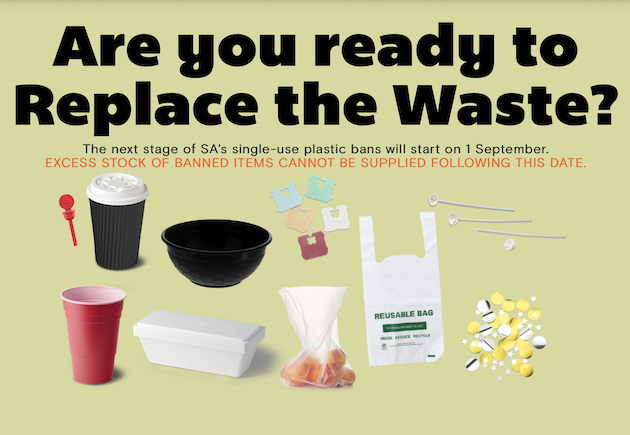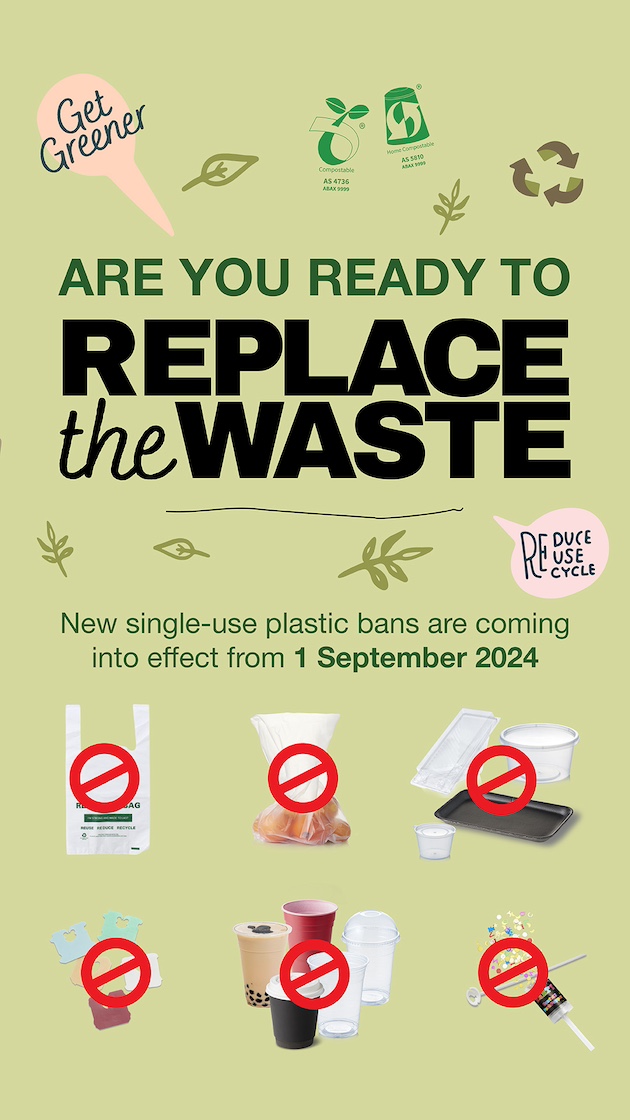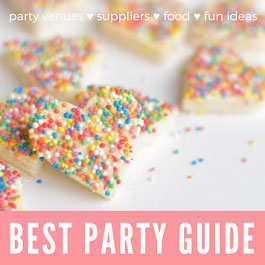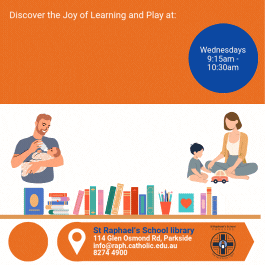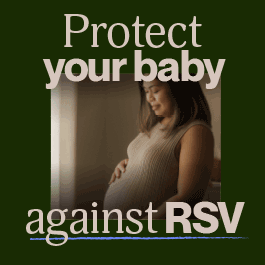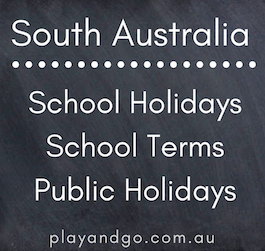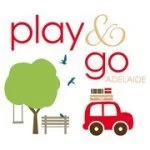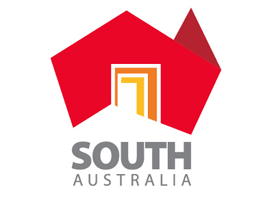Are you ready to Replace The Waste in South Australia? The next stage of SA’s single-use plastic bans will start on 1 September 2024.
South Australia was the first state in the country to begin the ban on single-use plastics.
South Australians are committed to the environment and want action on single-use plastic products. By avoiding waste and shifting to reusable or recyclable options, we can ensure the best environmental outcome for our ‘clean and green’ state.
South Australia’s Single-use and Other Plastic Products (Waste Avoidance) Act 2020 is the first legislation of its kind in Australia. Plastics play an important role in our economy and daily lives. When used in packaging, plastic helps ensure food safety and reduce food waste, but too often the way it is produced, used and discarded results in a wasted resource, and causes pollution, litter and harm to marine life.
These products will be banned from 1 September 2024:
- Plastic barrier bags (plastic bags without handles)
- Thick supermarket or boutique-style plastic bags
- Expanded polystyrene (EPS) consumer food and beverage containers
- Plastic confetti and plastic balloon sticks/ties
- Plastic food bag tags
- Single-use plastic beverage containers (including coffee cups)
- Single-use plastic food containers
5 STEP PLAN
There is currently a 5 step plan with banned items added each year from 2021 – 2025. See the full lists below:
Banned from 1 March 2021:
Single-use plastic straws, cutlery and stirrers were prohibited from sale, supply or distribution in South Australia including bioplastic alternatives. These single-use items can be replaced with reusable and plastic-free compostable alternatives. Health and disability exemptions apply for single-use plastic straws.
Banned from 1 March 2022:
Expanded polystyrene cups, bowls, plates and clamshell containers were also prohibited from sale, supply or distribution in South Australia. Oxo-degradable plastic products were prohibited from production, manufacture, supply and sale in the state. Oxo-degradable plastic products have additives which enable the plastic to break down into tiny fragments (‘microplastics’) and do not completely decompose.
The next steps establish a phased and manageable move away from single-use plastics over the next three years, enabling all South Australians to replace waste by avoiding single-use plastics and adopting ‘clean and green’ alternatives.
Banned from 1 September 2023:
Plastic-stemmed cotton buds will be phased out. Exemptions are in place, where plastic-stemmed cotton buds are required for medical, scientific, forensic or law enforcement purposes only.
Single-use plastic bowls and plates will be phased out. Exemptions are in place where single-use plastic bowls are required for medical, scientific, forensic or law enforcement purposes only and are not used for serving food to humans. A separate temporary exemption is in place for single-use cardboard or fibreboard bowls and plates that are lined with or coated with plastic.
Plastic pizza savers will be phased out. These are difficult to recycle in conventional recycling facilities, and when left inside a cardboard pizza box they impact on the recyclability or compostability of the pizza box.
Banned from 1 September 2024:
Plastic produce bags will be phased out, enabling the market to switch to compostable alternatives, that are certified to Australian Standards for compostability [AS4736-2006 and AS5810-2010], aligning with and supporting our state’s efforts in recovering food waste from households.
Thick supermarket or boutique-style plastic bags will be phased out. There are alternatives for these and the timing of this ban allows retailers to source alternatives and inform customers.
Single-use plastic beverage containers (including coffee cups) offer convenience for consumers, but these items and their attachments (such as lids and beverage plugs) have limited recovery and recycling pathways, creating confusion for consumers. Some estimates suggest that Australians throw away up to 1 billion coffee cups a year. Fibre and other compostable, or non-plastic recyclable or reusable alternatives can replace single-use plastic food containers with various alternatives already available and in use.
Expanded polystyrene cups, bowls, plates and clamshell containers were prohibited from sale, supply and distribution in South Australia on 1 March 2022. Other expanded polystyrene (EPS) consumer food and beverage containers in the market (e.g. gelato tubs) will also be banned. EPS trays used for meat, fruit and other food items for retail sale will be phased out. EPS is not recyclable through household kerbside collection systems and there are no alternative collection systems available.
Plastic confetti will be phased out in South Australia. The interpretation of what constitutes confetti will be defined in regulations to follow.
Plastic balloon sticks/ties will be phased out.
Plastic bread tags can be replaced with non-plastic alternatives, as has already been introduced by at least one major bread producer.
Banned from September 2025:
Plastic fruit stickers, plastic soy sauce fish, and pre-packaged and attached products (i.e. products that contain plastic straws or cutlery) are to be phased out. For these products, industry needs time to design new, more sustainable product formats and implement alternative solutions.
ALTERNATIVES
Replace the Waste have listed a number of helpful alternatives – SEE THE LIST HERE
For more information and all enquiries please visit the Replace the Waste website.
At Play & Go Adelaide we make every effort to provide accurate information to the best of our knowledge at the time of publication. We recommend confirming times, dates and details directly before making any plans as details may be subject to change.
Image Source: Replace the Waste
SUBSCRIBE
Follow Play & Go on Facebook and Instagram
Want to get all the latest events and activities straight to your inbox?
Subscribe to our weekly email newsletter below to keep up to date with our latest posts and find out all the best events & activities for Adelaide families. Newsletters are only sent once a week, and you may sometimes get a special offer exclusively for our subscribers only!


